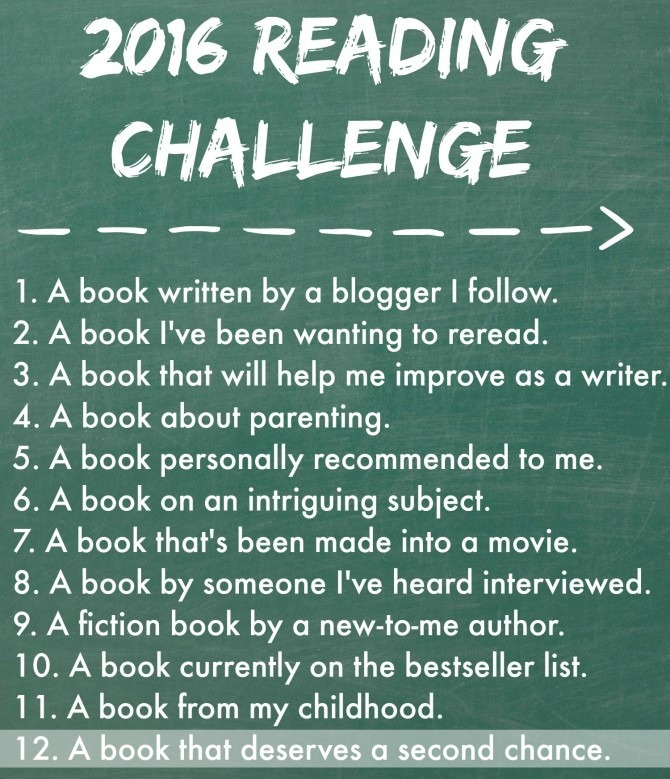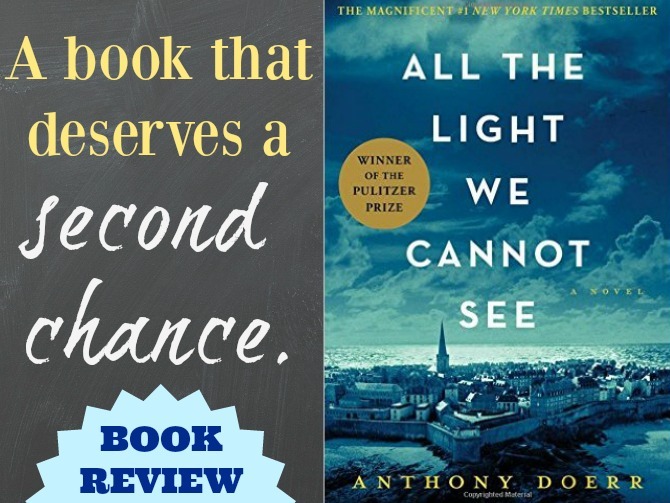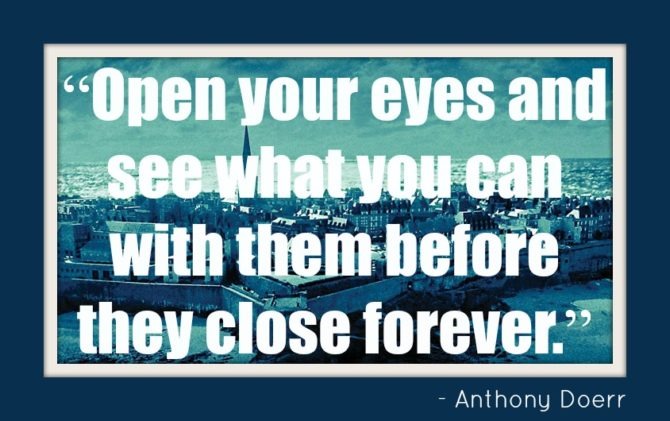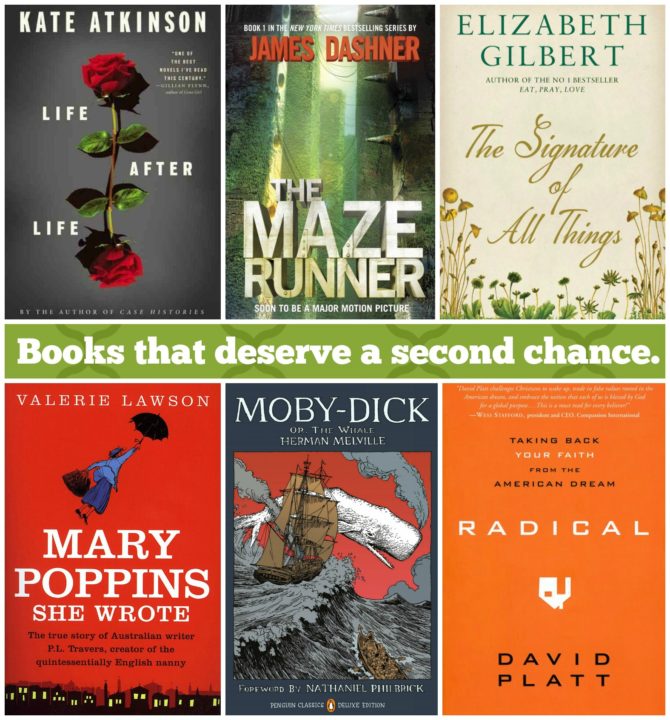A wise man once said “You know everything you need to know about a person from the answer to the question, ‘What is your favorite book?’” This truth speaks to the fact that one’s opinion of a book says more about the reader than the book itself.
As I become a more seasoned reader, I’ve come to realize that my evaluation of book is far from consistent. So many elements can play into my impressions: my mood, my current life circumstances, shows I’m watching or other books I am reading at the time. . . . A negative book review can predispose me to dislike a book, or exuberant praise can result in books that fall prey to unattainable expectations. When factors align perfectly, they can lead to a delightful reading experience, even with a less-than-exceptional book. But if something is out of place, it can cause a worthy book to leave a less-than-positive impression.
This recognition of my own fickle taste led me to include “a book that deserves a second chance” in my 2016 reading challenge.

There’s risk involved when choosing to revisit a a book. I may very well grow disillusioned with a book I once loved, or I could find myself squandering time on a book I enjoy even less the second time through. But there are instances when I doubt my first impression of a book enough to devote precious reading time to a re-read. This was the case with All the Light We Cannot See.
When I first began hearing about Anthony Doerr’s acclaimed novel, I couldn’t wait to get my hands on it. In fact, I even included the book on my shortlist of must-reads for 2015. After reading the book for myself, I was less than impressed—it wasn’t horrible, but it didn’t really stand out from the countless World War II novels that seem to be flooding bookshelves of late. However, I continued to hear rave reviews from family and friends who couldn’t understand why I didn’t love the book as much as they had, so eventually I decided I should give the book another chance. Since I listened to the audiobook last time, I chose to read the book on my Kindle this time through, guessing that a change in medium might also alter my impressions.

Since most people have read this book, I won’t go too into too much detail about the plot. But in case you are (somehow) still unfamiliar with the storyline, here’s a brief overview: Marie-Laure is a blind girl being raised by her father, a museum locksmith. At the start of World War II, they leave their home in Paris for the seaside town of Saint-Malo. Unbeknownst to Marie-Laure, her father has smuggled out a precious stone that makes her the target of a ruthless German jewel expert. Meanwhile, an orphan named Werner is growing up in Germany, where he becomes a self-taught radio expert and is recruited by the Nazis to help track the resistance. The stories of these key players alternate, as does the timeline, which vacillates between the beginning and end of the war, eventually leading to the convergence of both setting and stories.
So did my opinion of the book change upon second reading? Oh my goodness, YES! I am so glad that I chose to give this book a second chance. With this reading I was able to fully savor the nuanced writing, intricate metaphors, and richly painted characters, all elements that I did not fully appreciate when listening to the audiobook. True, the story moves slowly, and the shifting timeline is no less confusing in print than audio, but I was able to forgive these factors because I was so wrapped up in the beauty of the storytelling. This is not a perfect book, but it is a very, very good one and I think I can now definitively say that I am on the All the Light bandwagon. My (new) Rating: 5 stars!

My positive experience has given me courage to revisit some other titles I didn’t enjoy upon first reading. Who knows, I might encounter some new favorites! At the very least, my negative first impressions will be solidified and I will be able to confidently say that I do NOT like a book—that is, until I decide to give it a third chance!
Other Books I Considered for This Category
Life After Life, by Kate Atkinson: Like All the Light, this was a book that everyone seemed to enjoy a lot more than me, and it’s also one I first experienced via audiobook. My opinion was likely skewed because the unique, time-shifting structure was difficult to follow in the audio format, so this is one I would like to return to in hardcover.
The Maze Runner, by James Dashner: I found this novel dull, but have heard good things about the sequels and the movies, so perhaps this series is deserving of another chance.
The Signature of All Things, by Elizabeth Gilbert: I was a bit ambivalent about this novel after the first reading, but would love to revisit it having now read Big Magic and gotten more insight into Gilbert’s creative process.
Mary Poppins, She Wrote: The Life of P. L. Travers, by Valerie Lawson: I tried reading this book last year and couldn’t get through it. The writing style wasn’t to my taste, but Travers’ intriguing story is reason enough to pick this one up again.
Moby Dick, by Herman Melville: I HATED this book when I read it in high school, and often cite it as my least favorite book of all time. But my tastes have matured and it’s probably time to read it again before continuing to pass such harsh judgment.
Radical: Taking Back Your Faith from the American Dream, by David Platt: I read this book when it first came out in 2010, and at the time I disagreed with many of Platt’s ideas. My ideology and faith have altered since then and I’m curious to see how my opinion of the book—and of Platt’s stance—might have changed.

Now it’s your turn: what books in your reading history are deserving of a second chance? Are you willing to give a book another try?!
I often find myself wondering if you and I have a sixth sense of bookishness. In your recent posts you’ve talked about nearly every book that I’m reading or recently read. Today I was thinking of texting you about Life After Life. ☺ And I recently started The Westing Game. I am pretty happy to hear that you liked All the Light… on your second reading of it. I thought the writing was absolutely beautiful.
There is nobody with whom I’d rather share a sixth sense of bookishness! I hope you like The Westing Game; I loved it! It would be a fun one to recommend to your students. What did you think of Life After Life? Is it worth my time to give it another shot?
The Westing Game is actually part of the 7th grade curriculum at my school, and so many students said they liked it, that I thought I better read it! I wouldn’t rush to read Life After Life again. The writing was out-of-this world amazing, but the plot was lacking so much that it couldn’t possibly be better the second time around. Maybe try something else by Kate Atkinson – although I haven’t read anything else by her, so who knows! I just hear good things about her.